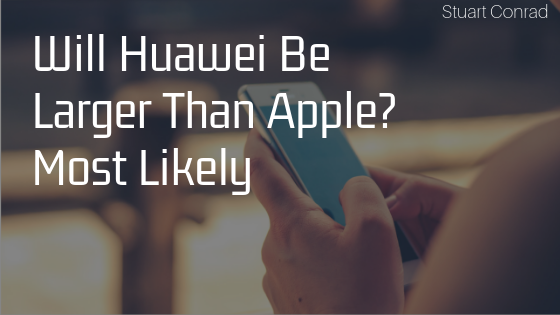Historically, to be a major player in the global telecom market implied you’d be a dominant player in the US markets as well. However, Huawei, China’s homegrown tech giant, is starting to show the world that they don’t need America to be number one. In fact, in 2018 Huawei surpassed apple in Global smartphone sales, leaving the company second to only Samsung. But, it’s not just the sales of smartphones and tech equipment. Huawei is quickly becoming an international leader in the 5G technology realm, making it a viable threat to the tech moguls of the US.
In addition to its rapidly rising phone sales on the Asian continent, Huawei is being considered a threat to national security due to its 5G capabilities. So much so, that the US has taken steps to ban Huawei’s equipment from being distributed in the US. This ban is touted as being based on spying concerns and national security risks but one has to wonder if other competitive factors might be at play here.
Huawei has shown that it has the capability and technology to introduce 5G devices to the general public and that scares the US tech leaders. There has been a rallying cry for the US-based companies to begin work on their own 5G devices but there is some skepticism around whether they even have the components needed to implement it. There does not appear to be a viable way for US companies to secure the 5G networking equipment that they need, as opposed to Huawei, which has access to that equipment within its own house.
As the need and demand for 5G becomes greater and greater, the expectation that the US companies will fulfill that requirement has started to diminish as eyes are turning to foreign companies like Huawei. The question remains as to whether this tech giant will be able to gain the overall number one spot worldwide without access to the US market. With its momentum around the rest of the world, Huawei just might not need the US.
It’s worth noting that amidst the rising prevalence of Huawei’s technology, we are beginning to see something else – fear. Fear from US officials and intelligence experts that Huawei represents more than just tech solutions. Fear that Huawei represents impending espionage and security risks from Asia. But that begs the question as to whether that fear is less fear of a possible security risk and more fear that our own homegrown corporations may be outshined by an international enterprise?
The US has also called for other countries around the world to turn a cold shoulder to Huawei’s 5G technology. While some seem to be heeding its advice, others seem to be defiantly doing their own thing. That is their prerogative. Australia and New Zealand have seemingly “sided” with the US on denying access to the tech developed by Huawei, while Germany seems on board with its offerings.
An even bigger picture than Huawei, China as a whole has become a realistic contender to usher in the new era of exponential tech. China’s role and impact will continue to be unveiled in the years ahead as its size, knowledge, and expertise all continue to expand.

